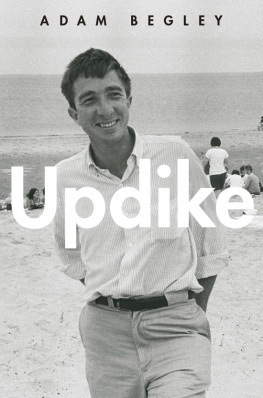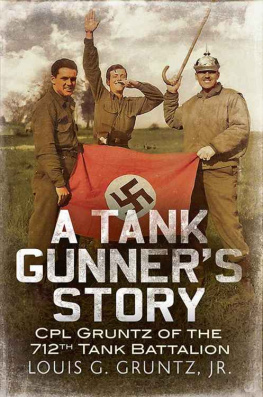Louis Begley - Wartime Lies: A Novel
Here you can read online Louis Begley - Wartime Lies: A Novel full text of the book (entire story) in english for free. Download pdf and epub, get meaning, cover and reviews about this ebook. year: 1991, publisher: Ballantine Books, genre: Non-fiction. Description of the work, (preface) as well as reviews are available. Best literature library LitArk.com created for fans of good reading and offers a wide selection of genres:
Romance novel
Science fiction
Adventure
Detective
Science
History
Home and family
Prose
Art
Politics
Computer
Non-fiction
Religion
Business
Children
Humor
Choose a favorite category and find really read worthwhile books. Enjoy immersion in the world of imagination, feel the emotions of the characters or learn something new for yourself, make an fascinating discovery.

- Book:Wartime Lies: A Novel
- Author:
- Publisher:Ballantine Books
- Genre:
- Year:1991
- Rating:4 / 5
- Favourites:Add to favourites
- Your mark:
- 80
- 1
- 2
- 3
- 4
- 5
Wartime Lies: A Novel: summary, description and annotation
We offer to read an annotation, description, summary or preface (depends on what the author of the book "Wartime Lies: A Novel" wrote himself). If you haven't found the necessary information about the book — write in the comments, we will try to find it.
Wartime Lies: A Novel — read online for free the complete book (whole text) full work
Below is the text of the book, divided by pages. System saving the place of the last page read, allows you to conveniently read the book "Wartime Lies: A Novel" online for free, without having to search again every time where you left off. Put a bookmark, and you can go to the page where you finished reading at any time.
Font size:
Interval:
Bookmark:
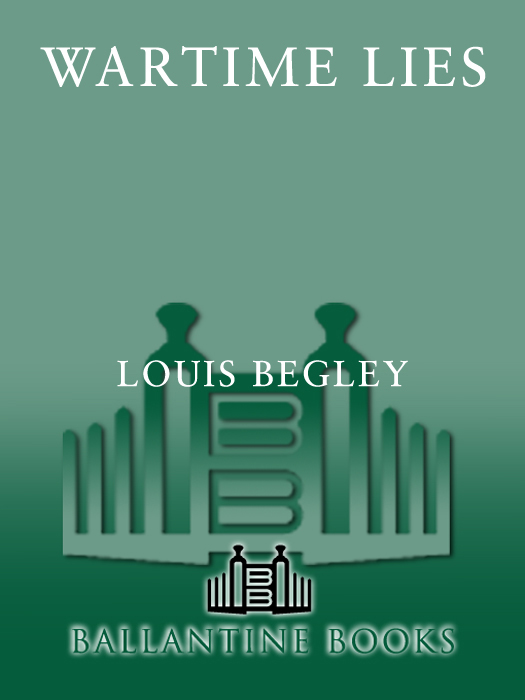
Told with haunting grace and austerity, of a golden childhood into which anguish creeps gradually and imperceptibly Powerfully told.
Los Angeles Times Book Review
Stunning Captures the unequivocal dread and evil of those years with stark and haunting prose, for Macieks young voice is so pureso unselfconsciously honestthat it etches itself into the memory like writing on stone Wartime Lies has a sense of being written from the darkest and most private chambers of a mans heart.
The Boston Globe
An artful, beautifully written novel that tells the powerful story of a boy and his auntPolish Jewscaught in the horror of the Holocaust. Alone together, these two manage to survive the unbearable, saving their lives with mundane and brilliant lies.
Jean Strouse
Chilling Begley writes with a kind of muted and stunned air, as if the words are sticking in his throat. The exquisite soft note of the master writer of the genre, Primo Levi, is sometimes heard in the novel.
The New York Review of Books
Remarkable A work of power and eloquence.
The Philadelphia Inquirer
A virtuoso (and virtuous) accomplishment What Louis Begleys vividly austere prose embodies is an immaculate act of witness in the form of a novel Begley raises fresh and risky questions about quarry and hunter, volition and obedience, decency and ideology.
Cynthia Ozick
Every word rings true. In the ever-burgeoning field of Holocaust literature, this novel stands out as a masterfully told tale, exceptional in its detailing of everyday life as led by the hunted, to whom no day was ordinary.
The Miami Herald
Spare and beautifully written Wartime Lies is a meditation on the human capacity for every kind of abomination and for self-sacrifice and heroism as well.
Daniel Aaron
A profound work of arthaunting, terrifying, and absolutely enthralling.
James Chace
Haunting The book takes the reader into the nightmarish world of Polish anti-Semitism and the Germanic insistence on carrying out the Final Solution. The child grows into manhood deformed by years on the run, knowing full well that he escaped the horror, but he cant free himself from its memory.
St. Louis Post-Dispatch
Haunting, powerful [A] searing story of the quest for an authentic self in an insane world.
Publishers Weekly
A marvel of compression, recollection, and lyric intensity.
Shana Alexander
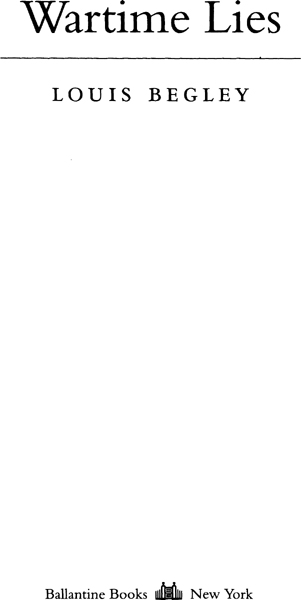
For my mother
T AKE a man with a nice face and sad eyes, fifty or more winters on his back, living a moderately pleasant life in a tranquil country. He is a bookish fellow, the sort you would expect to find in a good publishing house or at a local university teaching how to compare one literature with another. He might even be a literary agent with a flair for dissident writing: texts bearing witness against oppression and inhumanity. Sometimes, in the evening, he reads Latin classics. There is no question anymore of his being able to do a version. He learned Latin in great globs to pass whatever examination happened to be blocking his path, always in the very nick of time; his knowledge was never precise. Fortunately, the power to grasp meaning and to remember has remained. He reveres the Aeneid. That is where he first found civil expression for his own shame at being alive, his skin intact and virgin of tattoo, when his kinsmen and almost all the others, so many surely more deserving than he, perished in the conflagration.
He takes care to keep the metaphor at a distance. His native town in eastern Poland was no Ilium, and even if some SS black-shirt, imperturbably beating an aged former human being with a riding crop, is a pretty good stand-in for Pyrrhus slaughtering Priam, where, in that senseless tableau, are the contending golden-haired gods and goddesses? He has seen such a beating, administered to a totally bald man forced to kneel, the blows aimed at the top of the head, the mans hands folded behind his back, unable to wipe the blood streaming down his face. What insult to what goddess was avenged by that outrage? Did Jove, sulking, order into action the detail of old Jews so usefully engaged in cleaning street gutters, also on their knees, under the supervision of Jewish militiamen, long staves held at the ready?
Now he caresses the metaphors. When Aeneas plays the tourist in Carthage, thoughtfully enveloped in a cloud by his immortal mother, his astonished eyes behold scenes of Trojan slaughter portrayed artfully on Didos palace walls. Did not our man himself, quickly after his war ended, see in the first books of photographs of Auschwitz, Bergen-Belsen and Buchenwald naked, skeletal men and women alive and staring at the camera, corpses lying in disorderly piles, warehouses of eyeglasses, watches and shoes? Where is the sense of his survival? Father Aeneas fleeing Troy with little lulus fulfills an immutable promise: he will found eternal Rome; by the will of Jove and a twist of the tongue, Ascanius-Iulus will become the forebear of the Julian Caesars. Our man, sea-tossed, hollowed out and bereft, thinks he has no discernible destiny. His memorable scenes are the stuff of nightmares, not myth.
Our man avoids Holocaust books and dinner conversations about Poland in the Second World War even if his neighbor is beautiful, her eyes promising perfumed consolation. Yet he pores over accounts of the torture of dissidents and political prisoners, imagining minutely each session. How long would it have been before he cried and groveled? Right away, or only after they had broken his fingers? Whom would he have betrayed and how quickly? He has become a voyeur of evil, sometimes uncertain which role he plays in the vile pictures that pass before his eyes. Is that the inevitable evolution of the child he once was, the price to be paid for his sort of survival?
A different affinity draws him to Catullus, a beacon flashing across black water. He imagines the poets childhood near Verona, the charming Sabine villa, the swift yacht. A tender father accompanies Catullus to Rome and sees to his establishment there. The poet loves Lesbia, beautiful nymphomaniac Lesbia, loves her not as the common run of men love a girl but as a Roman loves his sons and sons-in-law. Alas, love for Lesbia is a sickness. Lesbia, whom Catullus loves more than himself and all his tribe, turns tricks in doorways and alleys. The poet no longer wishes her to be faithful, even if that were possible. He wants to heal, to be well, to throw off the foul sickness that has robbed him of his enjoyments. Ipse valere opto et taetrum hunc deponere morbum. The lines have haunted our man for years, he thinks he knows Catulluss sickness to the bone, he too has wanted to heal and to be well regardless of all else. Only this metaphor, too, fails. His disease lies deeper than the poets. Catullus never doubts he was born to be happy and to have pleasure in past good deeds, benefacta priora voluptas. The gods owe him as much for his piety. O di, reddite mi hoc pro pietate mea. The man with sad eyes believes he has been changed inside forever, like a beaten dog, and gods will not cure that. He has no good deeds to look back upon. Still, it is better to say the poem over and over. He will not howl over his own despair
Font size:
Interval:
Bookmark:
Similar books «Wartime Lies: A Novel»
Look at similar books to Wartime Lies: A Novel. We have selected literature similar in name and meaning in the hope of providing readers with more options to find new, interesting, not yet read works.
Discussion, reviews of the book Wartime Lies: A Novel and just readers' own opinions. Leave your comments, write what you think about the work, its meaning or the main characters. Specify what exactly you liked and what you didn't like, and why you think so.

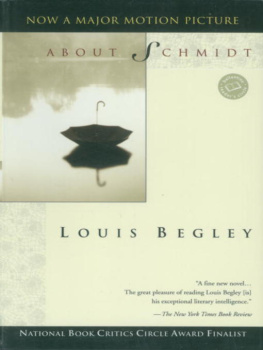

![Louis de Montfort - The Saint Louis de Montfort Collection [7 Books]](/uploads/posts/book/265822/thumbs/louis-de-montfort-the-saint-louis-de-montfort.jpg)
